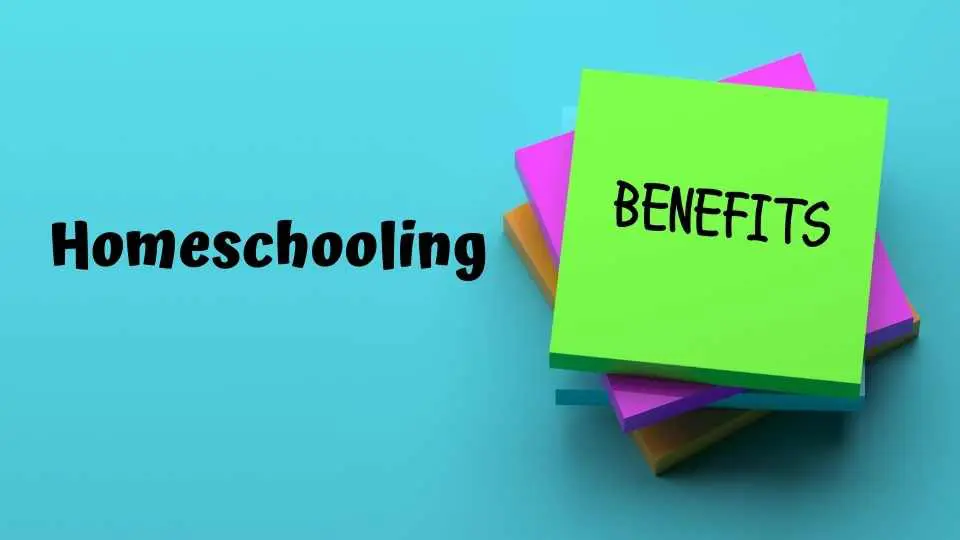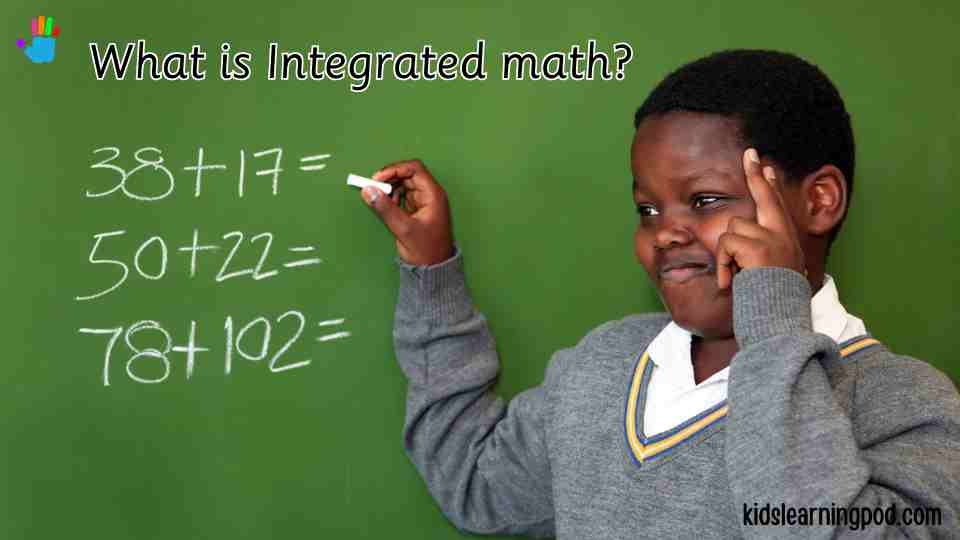At what age do you start homeschooling? It is a difficult decision for parents considering this educational option for their children. You can begin homeschooling at any time during the school year. Homeschooling gives a personalized and flexible learning environment for students.
The age at which to start homeschooling depends on several factors, including the child’s developmental stage, the parent’s comfort level with homeschooling, and the availability of homeschooling resources.
In this blog post, we will explore the different approaches to homeschooling and the challenges and solutions for starting at different ages. Whether you’re a seasoned homeschooler or just starting to research this option, this post will provide valuable insights and resources to help you make an informed decision.
What is homeschooling?
Homeschooling is an educational option in which a parent or caregiver provides educational instruction to their children in a home setting, rather than enrolling them in a traditional public or private school.
Homeschooling allows for a personalized curriculum and flexible schedule, and allows the parent to have control over the educational experience and values taught to their children.

Benefits of Homeschooling
Homeschooling offers a range of benefits for parents and their child. Personalized education is a key advantage, as homeschooling allows for a tailored curriculum and teaching method that caters to the individual needs, strengths, and interests of each child.
Additionally, the homeschool journey provides a flexible child’s learning style. It allows parents to set their own pace and schedules. They can also plan breaks, travel, or pursue other interests as needed without sacrificing their children’s education.
Strong family bonds can also be developed through homeschooling, as parents and children spend more time together and have the opportunity to build a close relationship. Homeschooling also offers a safe and supportive learning environment, where children are free from peer pressure and bullying. You can read more about homeschool planning in this link.

Homeschooling Requirements by State’s department
Homeschooling requirements vary by state and it’s important to be aware of the specific laws and regulations in your area. In general, homeschooling is regulated by the state department of education, and families are required to follow certain guidelines.
The most important thing is to keep records of their child’s educational progress, and extracurricular activities, and meet certain attendance requirements to ensure a learning experience.
Some states require that parents should hire a certified teacher or have a certain level of education or teaching certification.
While homeschooling your child you should register with the state or local school district. It’s important to research and understand the homeschooling laws and requirements in your state, as failure to comply can result in legal consequences.

Age Requirements for Homeschooling
The age requirement for homeschoolers varies by state, but in general, children learning begins in the early years. They are required to begin their formal education between the ages of 5 or 6 and continue until they reach a certain age, usually 16 or 18.
Some states have more flexible requirements and allow homeschool families to determine their own right age to start homeschooling, as long as they meet certain educational standards.
However, there are some states that have stricter age requirements and impose compulsory attendance laws. It’s important to research and understands the homeschooling laws and requirements in your state, including the age requirements during the school year, to ensure that you are in compliance with the regulations.

Factors to Consider when Deciding the Start Age for Homeschooling
When deciding the start age for homeschooling, several key factors should be considered, including the child’s developmental stage, the parent’s comfort level and confidence, the availability of resources and support, the family’s lifestyle and circumstances, and the child’s interests, strengths, and learning style. It’s important to carefully consider these factors in order to determine the right age for homeschooling and ensure children’s learning.
Child’s Developmental Stage
When deciding the start age for homeschooling, there are several factors to consider. Child’s developmental stage and readiness for homeschooling should be taken into account. Some children may be ready to begin homeschooling at a young age, while other children may not be ready until they are older. Making homeschooling fun is also another important aspect.

Parent’s Comfort Level with Homeschooling
The parent’s comfort level with homeschool is an important factor to consider when deciding the start age for homeschooling. Once you started homeschooling, parents are required to take on the role of teacher, which can be a significant and challenging responsibility. Parents who are not comfortable with teaching, or who lack confidence in their ability to provide quality education, may want to consider starting homeschooling at a later age, when they have had time to build their skills and confidence.
It’s important to remember that homeschooling does not require parents to be experts in every subject; there are many resources and support networks available for homeschooling families. However, it’s important for parents to feel confident and comfortable with their ability to provide a quality education for their children.

Family Dynamics and Schedules
Family dynamics and schedules play an important role in determining the start age for homeschooling. Homeschooling requires a significant time commitment from both parents and children, and it’s important to consider the impact it will have on family life and child’s temperament.
If you have multiple children, you may want to consider starting homeschooling with the young child first, so that you can gradually ease into homeschooling and build your experience and confidence.
It’s also important to consider the impact homeschooling will have on family schedules. Homeschooling requires a more flexible schedule, as you will need to allocate time for learning and other activities. If you have other commitments, such as work or caregiving responsibilities, you may want to consider starting homeschooling at a later age, when you have more time and support.
Additionally, you may want to consider the impact that homeschooling will have on your personal and social life, as you will have less time for other activities and may become more isolated. By carefully considering family dynamics and schedules, you can ensure that homeschooling is a good fit for your family and that you are able to provide a quality education for your children.

Homeschool Curriculum
The homeschooling curriculum should be tailored to the student’s grade level, in order to provide a comprehensive and challenging education that meets their individual needs and goals.
Read 10 reasons to homeschool your kid here.

Preschool Age
For elementary school students, the curriculum should focus on building a strong foundation in reading, writing, math, and science, as well as social studies, art, music, and physical education.
Middle School age
Middle school students can delve deeper into these subjects, as well as explore electives that align with their interests and future goals.
High School
High school students should have a more advanced curriculum, which can include advanced math and science courses, as well as electives in areas such as foreign language, business, and technology.
It’s important to note that homeschooling curriculums can vary greatly depending on the student’s learning style, interests, and goals. Some families choose to use a structured curriculum, such as a pre-packaged program or a traditional textbook, while others prefer to create their own curriculum using a variety of resources, such as online courses, books, and hands-on projects.
Some homeschool families choose to follow a traditional school calendar, while others opt for a year-round or year-at-a-time approach. By carefully considering the student’s needs and goals, and selecting a curriculum that meets those needs, homeschooling families can ensure that their children receive a quality education that prepares them for success in the future.
Different Approaches to Homeschooling
There are several different approaches to homeschooling, each with its own unique advantages and disadvantages. Some of the most common approaches include traditional homeschooling, unschooling, classical homeschooling, and Charlotte Mason homeschooling.
Each approach to homeschooling has its own unique strengths and weaknesses, and the best approach for a particular family will depend on their individual goals, values, and educational philosophy.

Traditional Homeschooling
Traditional homeschooling is a more structured approach to homeschooling, which is modeled after the traditional school system. In this approach, homeschooling parents follow a specific curriculum and use textbooks and other educational resources to guide their lessons.
Traditional homeschooling often involves scheduled lesson plans, assignments, and standardized testing, with the aim of preparing students for college or the workforce. This approach is ideal for families who value structure and organization, and who want to provide a comprehensive education that is similar to what students would receive in a traditional school.
Additionally, traditional homeschooling can be a good choice for families who want to ensure that their children receive a solid education in all subject areas, including math, science, history, and English. By following a structured curriculum and using educational resources, traditional homeschooling can provide students with a well-rounded education that prepares them for success in the future.
Unschooling
Unschooling is a more child-led and experiential approach to homeschooling, which emphasizes hands-on learning and exploration. In unschooling, students are given the freedom to learn at their own pace, and to follow their own interests and passions.
Rather than a traditional curriculum, unschooling focuses on learning through real-life experiences, such as travel, volunteer work, and hands-on projects. Unschooling parents act as facilitators, providing resources and support, but allowing the child to lead their own education.
This approach is ideal for families who value creativity and independent thinking, and who believe that education should be enjoyable and relevant to a child’s life. By providing opportunities for hands-on learning and exploration, unschooling can foster a love of learning and help students develop critical thinking and problem-solving skills.
Additionally, unschooling can be a good choice for families who want to nurture their child’s individual strengths and interests, and who believe that education should be tailored to each student’s unique needs and goals. Overall, unschooling is a unique and flexible approach to homeschooling that can provide students with a well-rounded education and a lifelong love of learning.

Hybrid Homeschooling
Hybrid homeschooling is a combination of traditional homeschooling and online or blended learning. In this approach, homeschooling parents can choose to utilize online courses, virtual classes, or online schools to supplement their homeschool curriculum.
This type of homeschooling can provide students with the best of both worlds, combining the flexibility and individualized attention of homeschooling with the resources and structure of online education.
Matter of choice!
Hybrid homeschooling can be a good choice for families who are looking for a more flexible homeschooling option, or who want to supplement their homeschooling curriculum with specialized courses or advanced subjects.
Additionally, hybrid homeschooling can provide homeschooling students with access to a wider range of educational resources, such as virtual classes and online textbooks. This can help students to stay engaged and motivated and can provide them with the support they need to succeed in their studies.
Overall, hybrid homeschooling is a growing trend in homeschooling, and can be a great choice for families who want to provide their students with a well-rounded education that takes advantage of the best of both traditional homeschooling and online learning.
How do you start homeschooling a 2 year old?
Start homeschooling a 2-year-old can be a challenging but rewarding experience. At this age, children are naturally curious and eager to learn, and homeschooling provides an opportunity to support their development and foster their love of learning. Here are a few tips to help you homeschool a 2-year-old:
- Focus on play-based learning: At this age, play is the primary means by which children learn and develop. Encourage your child’s natural curiosity by providing a variety of toys, play dough, books, and other learning materials that support their interests in everyday activities
- Emphasize hands-on activities: Hands-on activities, such as painting, building, and cooking, making dough on the kitchen table can help your child to develop fine motor skills and creativity.
- Encourage language development: Young Children learn very fast. Reading to your child, singing songs, and having conversations with them can help to develop their language skills and build their vocabulary.
- Provide opportunities for movement: Young children have a lot of energy and need opportunities to move and play. Incorporating movement and physical activity into your homeschooling routine can help to keep your child engaged and focused.
- Be patient and flexible: Homeschooling a 2-year-old can be a demanding experience, and it’s important to be patient and flexible as your child grows and develops. Don’t be afraid to adapt your homeschooling approach as your child’s needs change.
Remember, homeschooling a 2-year-old is about creating a positive, supportive learning environment that encourages their natural curiosity and love of learning. With patience and creativity, you can help your child to develop the skills and confidence they need to succeed.
What do I need to homeschool my child?
In the majority of the United States, homeschooling your child requires no qualification as a teacher. Most states have strict guidelines about home schooling. Others require registering as certified teachers, having a college degree and being supervised in school by a certified educator.
When to Start Homeschooling? Age and Grade
FAQs
What age do most homeschoolers graduate?
Most homeschoolers graduate from high school around the age of 17 or 18, which is the typical age for high school graduation in the United States. However, the exact age can vary depending on the individual student’s progress and the homeschooling approach used.
Who is the youngest kid to graduate high school?
The youngest child to graduate from high school can vary over time and across regions. It is not uncommon for exceptionally gifted or accelerated learners to graduate from high school at a very young age, sometimes as early as 10 or 11 years old. These cases are relatively rare and receive significant media attention.
What is the youngest a kid has graduated high school?
The youngest age at which a child has graduated from high school is around 10 years old in some reported cases. These young graduates typically demonstrate exceptional intellectual abilities and have followed accelerated educational paths.
What is the youngest age someone graduated high school?
The youngest age at which someone has graduated from high school can vary, but it is often in the range of 10 to 13 years old for exceptionally gifted students who follow accelerated educational programs.
What’s the oldest you can be in high school?
In most traditional high school systems, students are typically expected to graduate by the age of 18. However, there can be exceptions, such as students who may have faced delays or extended educational periods due to various reasons. The upper age limit for high school enrollment can vary depending on the specific school or district’s policies.
Who is the youngest person to ever graduate from Harvard?
The youngest person to ever graduate from Harvard University is known to be Michael Kearney. He graduated with a Bachelor of Arts degree in Anthropology from Harvard at the age of 10 in 1994. Michael Kearney is widely recognized for his exceptional academic achievements and early graduation from prestigious institutions.





